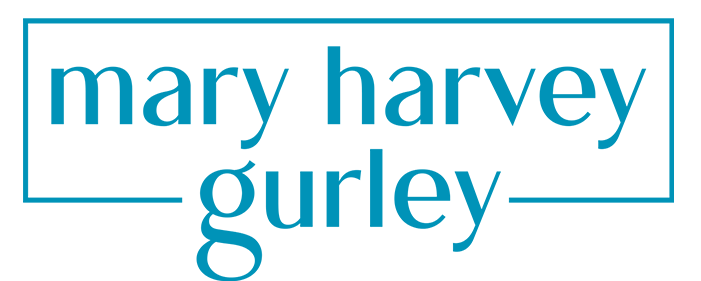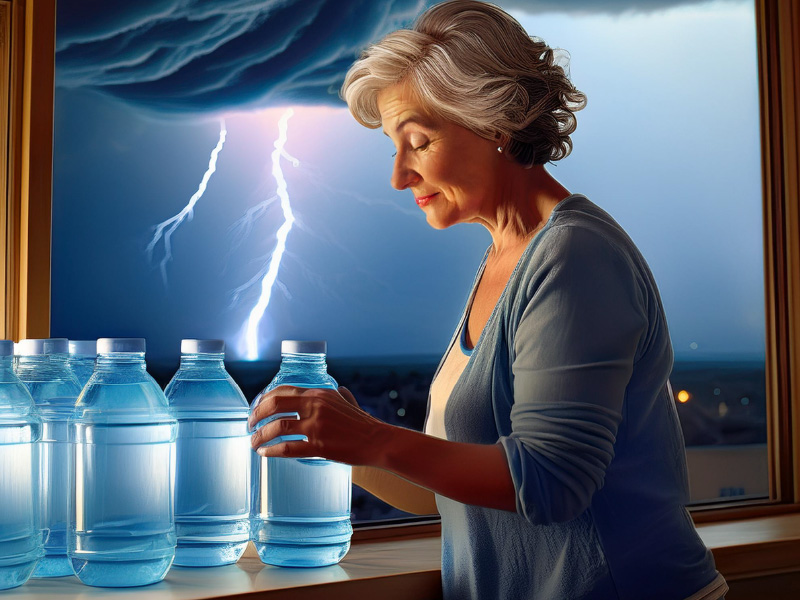Smart Emergency Planning for Women
How much extra water do you have at home? Just this week, I contacted my close friends and family to encourage them to increase their emergency water supply. Most of them had one to two cases of water on hand. Let me be honest; that really isn’t enough. With tensions rising around the globe, I think we’ve got to have a water source in case of natural disasters or potential civil unrest. Most of us have plenty of canned food at home, but water is crucial and you should have more.
I Am a “Prepper”
Let me start with a confession: I’m a prepper.
I am not the kind with a bunker full of supplies for years on end, but someone who believes in being ready for life’s unexpected moments. I inherited my preparedness skills from my mother. She was an elegant woman, a bank president who dressed in her Talbot suits and pearls every day.
My first exposure to prepping was during the Cuban Missile Crisis when I was a very young child. I watched my mother calmly stockpile essentials, particularly water. I asked her why she was doing this. Her simple yet profound explanation stuck with me: “I must be able to take care of my family.” That lesson shaped how I approach life today, especially when it comes to being prepared.
After she died from Alzheimer’s, we found several different emergency kits, large and small, stashed around the house.
Being Prepared in an Emergency is Essential for Older Women
If you’re a woman over 60, like me, being prepared for emergencies isn’t just smart—it’s essential. Recently, I’ve seen firsthand how quickly things can go wrong. In just a few months, Memphis experienced a major freeze that compromised the water supply, and then diesel fuel leaked into the water in my suburb of Germantown. Both times, we were left without safe drinking water for days, and I used my emergency supplies to help friends and family.
My Journey to Preparedness
Living in the New Madrid fault region, I know a significant earthquake could strike in time. Back in 1990, there was even a prediction of an earthquake on December 2. The panic was real, and as a communications specialist for an airline, I was tasked with creating an earthquake preparedness guide.
After extensive research and writing, I wrote a comprehensive guide—only for the legal department to nix it, fearing liability issues. Undeterred, I offered the guide to the local American Red Cross, who have used it for years.
Teased About my Prepping Skills
My friends and family have teased me about my prepping habits for years—until these past few years. We’ve faced multiple water crises in the Memphis area, including one over Christmas that required a boil water alert for days. Because I had extra water, I could offer my family a place to cook and shower. These experiences have driven home the importance of being prepared for myself and the people I care about.
I do expect my family and friends will joke about this at my funeral. That’s okay; they have plenty of hysterical moments to share. I’d rather them be prepared for any emergency and be the butt of jokes. Hey, I laugh at myself frequently.
Hurricanes, Tornados, Earthquakes and Civil Unrest:
We live in a world where natural disasters, power outages, and other crises can happen anytime. And let’s be honest, as older women, especially those of us living alone, it’s crucial to be able to take care of ourselves. You don’t need to go overboard (no need to ruin a manicure) but having a few basics on hand can make all the difference.
Why You Should Prepare Too
So, could you care for yourself for seven days if a disaster struck? You can go without food for a while, but water is non-negotiable—you can only last three days without it. This isn’t about fear; it’s about empowerment. Knowing you can handle whatever comes your way is a powerful feeling.
As the president of my HOA, I often hear from widowed residents who struggle with even the most minor issues, saying, “My husband used to take care of this.” I understand—I’ve been widowed for years. But we must be able to care for ourselves, whether we want to or not. Your children might be unable to reach you, and government assistance could take days.
How to Get Started
Prepping doesn’t have to be overwhelming. Here are some basics to get you started:
- Create an Emergency Plan: Know your local risks and decide on safe meeting points for your family.
- Stay Alert: Sign up for local emergency notifications and weather updates.
- Assemble an Emergency Kit: Water, non-perishable food, flashlights, batteries, and first aid supplies are must-haves.
- Pet Preparedness: Don’t forget extra supplies and a pet plan.
- Safety Proof Your Home: Install smoke detectors and secure heavy furniture.
- Medication Management: Keep a list of your medications and a supply for at least two weeks.
- Financial Readiness: Have some cash on hand in small denominations. I can’t answer how much it is different for each person.
- Communication Plan: Ensure your phone, chargers, and backup batteries are ready.
- Know Your Area: Familiarize yourself with local evacuation routes and emergency shelters.
- Coffee and chocolate: Ensure you have your favorite creature comments to survive.
These are just a few steps to get you started, but the key is to tailor your plan to your needs.
Empowerment Through Preparedness
Remember, preparedness is more than survival—it’s about independence, resilience, and peace of mind. By taking these simple steps, you’re not just ready for an emergency; you’re affirming your strength and setting an example for others.
Because I think it’s important for women to be prepared for any emergency, I have included a PDF about disaster preparedness for you to download and use.
Preparedness isn’t just about facing challenges—it’s about thriving despite them. Let’s get ready together.


